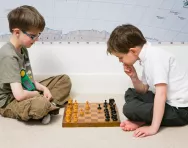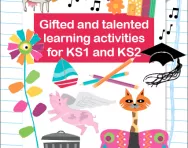Important update from TheSchoolRun
For the past 13 years, TheSchoolRun has been run by a small team of mums working from home, dedicated to providing quality educational resources to primary school parents. Unfortunately, rising supplier costs and falling revenue have made it impossible for us to continue operating, and we’ve had to make the difficult decision to close. The good news: We’ve arranged for another educational provider to take over many of our resources. These will be hosted on a new portal, where the content will be updated and expanded to support your child’s learning.
What this means for subscribers:
- Your subscription is still active, and for now, you can keep using the website as normal — just log in with your usual details to access all our articles and resources*.
- In a few months, all resources will move to the new portal. You’ll continue to have access there until your subscription ends. We’ll send you full details nearer the time.
- As a thank you for your support, we’ll also be sending you 16 primary school eBooks (worth £108.84) to download and keep.
A few changes to be aware of:
- The Learning Journey weekly email has ended, but your child’s plan will still be updated on your dashboard each Monday. Just log in to see the recommended worksheets.
- The 11+ weekly emails have now ended. We sent you all the remaining emails in the series at the end of March — please check your inbox (and spam folder) if you haven’t seen them. You can also follow the full programme here: 11+ Learning Journey.
If you have any questions, please contact us at [email protected]. Thank you for being part of our journey it’s been a privilege to support your family’s learning.
*If you need to reset your password, it will still work as usual. Please check your spam folder if the reset email doesn’t appear in your inbox.
10 ways to boost an able child's confidence

It’s easy to assume that more able children should be overflowing with confidence. But actually, children with high learning potential are more susceptible to low self-confidence than others.
These can be triggered by anything from a lack of understanding from other children to to serious bullying.
Boosting able children's confidence: what’s the problem?
There are several factors that may affect a gifted child’s confidence.
Perfectionism The most children tend to set themselves high standards, but sometimes these standards are so high that the child can never meet them. Children can go into 'meltdown' over something as small as getting a spelling wrong.


Is your child ready to be stretched?
- Download Challenge Packs for your child
- Maths & English packs for each school year
- Encourage your child to work at a greater depth
Intense emotions Children with high learning potential can be very sensitive to criticism, rejection and isolation. For example, their games may be so complicated that other children don’t want to play with them. They also think more deeply than other children, for instance about world issues like climate change, which can lead to worry, anxiety and even depression.
Asynchronous development Your seven-year-old may be able to read books intended for teenagers, but that doesn’t mean they have the equivalent level of maturity. Their cognitive ability often outstrips their social and emotional skills, and people may forget about their age and treat them as mini adults, imposing unrealistic expectations on them.
Misunderstanding Because high academic ability and the accompanying personal characteristics are often misunderstood by teachers and other kids, children may become frustrated and feel as if they don't fit in.
Sensory difficulties Sensitivity to stimuli like noise is common amongst children with high learning potential, and can affect their quality of life. It's not unusual for these children to have accompanying special educational needs like dyspraxia or sensory processing disorder.
Impostor syndrome Highly able children sometimes doubt their intellectual abilities, and might even feel like a fraud. This can override any evidence of success.
Building your highly able child’s confidence involves balancing their learning ability with their social and emotional needs. So how can you ensure you’re looking after their self-esteem as well as their academic achievements?
1. Praise the effort, not the ability
Rather than focusing on your child’s ability, praise the effort they make. So when they get full marks in their maths test, instead of saying, ‘Wow, you are so clever!’ try saying, ‘You’ve worked really hard on learning those formulas – well done!’
2. Acknowledge their age
Bright children are often treated as if they’re older than they actually are. At school, for example, they may be used as 'mini teachers,' expected to help their classmates with work. It's important to recognise that they’re still learning to regulate their behaviour and emotions, even if you feel they should be able to articulate their feelings rather than throwing a tantrum.
3. Teach them to cope with getting things wrong
One of the most valuable things you can teach your child is that it’s okay not to be perfect. A good way to do this is to try something new as a family, like roller skating or photography, knowing that you’re all likely to struggle at first. This helps your child learn how it feels to not be so good at something, in a supportive environment, which builds resilience.
4. Provide challenges at home
Highly able children are often under-stimulated at school, which can lead to them becoming bored and even depressed. You can help to counter this by extending them at home. Research projects and creative tasks are easy to set up and provide an excellent way to stretch and challenge your child.
5. Tap into their interests
Many gifted children have areas of particular interest, and having to keep their enthusiasm – or even obsession – under control at school can knock their confidence. If your child is passionate about space, dinosaurs or electric circuits, give them plenty of time and resources to explore these at home, whether that’s through books, the internet, extracurricular clubs or weekend outings.
6. Facilitate play
Children with high learning potential may struggle with friendships because other children perceive them as ‘different’. Encourage friendships by inviting other children to play, and be on hand to guide your child: setting up non-competitive tasks such as baking or craft can help them to bond on a more level playing field.
7. Don’t make comparisons
It’s easy to hold your child up as an example to others, particularly their siblings – ‘Why can’t you just concentrate on your homework like your brother?’ Try to avoid this: rather than building self-esteem, it could lead to your child ‘dumbing down’ so their abilities are less noticeable.
8. Give them down time
Trying to engage your child in intellectual activities all the time – even if they’re unconnected to schoolwork, like learning an instrument – can give them the message that they are only valued for their achievement and ability. Overscheduling can also lead to anxiety and sleep problems, which in turn affect confidence and wellbeing. Remember that your child needs time to play, watch TV, potter around outside and mess about with friends or siblings.
9. Be positive and proactive with school
Often, parents are concerned about being seen as pushy, but you know your child best. It’s common for gifted children to seem like model students at school when actually, they’re bored or unhappy, so if you feel your child’s needs aren’t being recognised, you need to have a positive discussion with their teacher about what can be done.
10. Get extra help if it’s needed
Sometimes, children with high learning potential need a little extra help in dealing with their emotions and building self-confidence. If you’re concerned about your child, talk first to their teacher, but be open to exploring other avenues of help, such as Child and Adolescent Mental Health Services (CAMHS), accessible through your GP, and organisations like Potential Plus.








